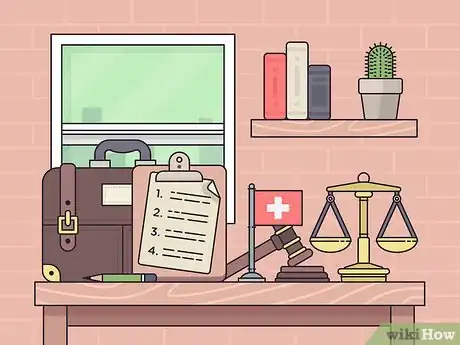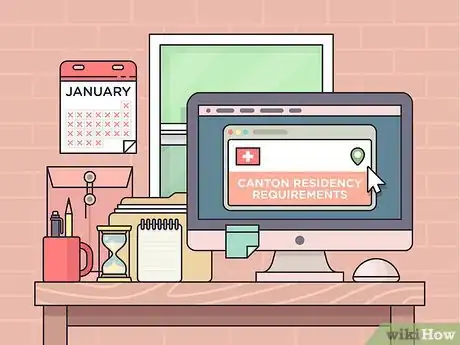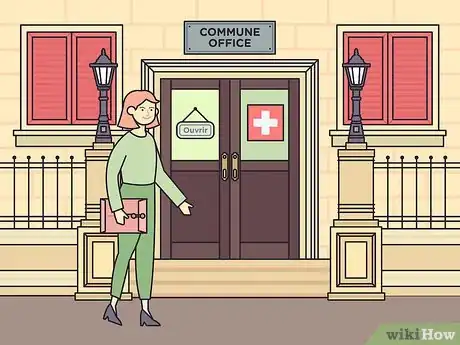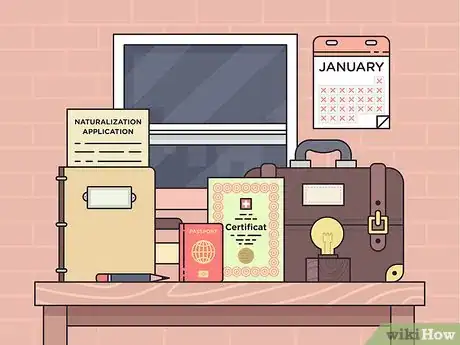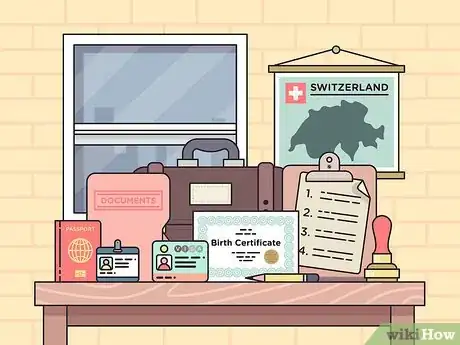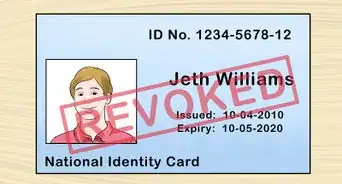This article was co-authored by wikiHow Staff. Our trained team of editors and researchers validate articles for accuracy and comprehensiveness. wikiHow's Content Management Team carefully monitors the work from our editorial staff to ensure that each article is backed by trusted research and meets our high quality standards.
This article has been viewed 56,729 times.
Learn more...
Switzerland is a beautiful country, and many people would love to live there. There 2 broad processes for becoming a Swiss citizen. If you are the spouse of a citizen, the child of a citizen, or a third generation foreigner, you may qualify for the “simplified naturalization” process (which is must faster). Otherwise, you must go through the traditional naturalization process, which requires 8-12 years of Swiss residency, among several other requirements.
Steps
Becoming a Naturalized Citizen
-
1Reside in Switzerland for 8-12 years. Currently, a foreigner with no direct blood ties to Switzerland must live in the country for 12 years or more years before applying for citizenship. However, a new law reducing the number of years of residence from 12 to 8 was passed by the Swiss Parliament in June 2014. This law will take effect on January 1, 2018.[1]
- Years spent in the country between ages 10 and 18 count double.
- If you arrive in Switzerland as a refugee, you can apply for asylum. You will still need to stay in the country for 8-12 years before you apply for full citizenship.
-
2Apply for a C-permit for permanent residence. A C-permit grants a foreign national the right of settlement in Switzerland. Most citizens of the European Union can qualify for a C-permit after 5 continuous years spent in Switzerland, with the exception of citizens from Cyprus, Malta, and the Eastern European member states. Individuals from all other countries must live in Switzerland for 8-10 years to qualify.[2]
- Visit your local commune office to apply for a C-permit.
Advertisement -
3Follow all federal guidelines for citizenship. Applicants for naturalization must prove that they are integrated into the Swiss way of life, are familiar with Swiss customs, and that they comply with all Swiss laws. These categories are quite subjective. Compile documents, images, and other proof that verify you have done these things, as best you can.[3] Be sure to:
- Pay your taxes
- Be prepared to perform military service.
- Do not break the law.
- Get to know your neighbors.
- Speak French, German, or Italian.
- Maintain a job.
- Show that you have personal and social ties to Switzerland.
-
4Meet the requirements for your canton and commune. The guidelines for naturalization vary considerably from canton to canton and commune to commune. In some locations, applicants may be required to take a verbal or written exam. Some locations may require input from other local residents. Some places may need in-person interviews. Find out the specific requirements for both your canton and commune, and follow these regulations to a T.
- All cantons have residency requirements. Depending on the canton, you will need to live there for anywhere from 2-8 years before you can be approved for citizenship at the canton level.
- If you must change cantons, you will need to live in your new canton for the length of the residency requirement before you can apply for naturalization.
-
5Pay naturalization fees. There are 3 levels of authority (federal, canton, and commune), which means there are 3 different fees to pay. The federal government charges anywhere from 50 to 150 francs for naturalization application. Costs set out by the cantons and communes can be much higher. For example:
- The canton of Vaud charges 350 francs.
- The canton of Zurich charges 500 francs.
- The basic rate for the canton of Geneva is 920 francs, but it goes up depending on your salary.
-
6Visit your local commune office to apply in person. Gather together your C-permit, personal identification, and any other documents that help to verify you are meeting the requirements for naturalization. Bring these items with you to your commune office, where you will complete an application. Your commune office will pass your information to the canton level, who will in turn pass it to the federal government.[4]
- You may be asked to complete interviews at the commune, canton, and/or federal level.
-
7Wait anywhere from 1.5 to 3.5 years. The process of applying for naturalization can take a long time. In most instances, this will take up to 3 and a half years.[5]
- The canton and commune where you live can play in big part in the length of this process.
Requesting Simplified Naturalization
-
1Apply as the spouse of a citizen. An individual who is married to a Swiss citizen is eligible for Swiss citizenship after being married for 3 years and living in Switzerland for 5. If the spouse has children from a previous relationship, those children are granted citizenship as well. Visit your local commune office to begin the simplified naturalization process.[6] A language test is not required, but one must be able to show the following:
- Integration into the Swiss way of life.
- Compliance with the Swiss rule of law.
- The applicant must not present danger to Switzerland's security.
-
2Request naturalization as the child of a citizen. Unlike some countries, a child born on Swiss soil is not automatically a citizen. A child gains automatic citizenship if they are born to married parents (at least one of whom is Swiss), or if they are born to an unmarried Swiss woman. The child of an unmarried Swiss man may gain citizenship pending proof of paternity.[7]
- A child of Swiss parents born abroad can acquire dual-citizenship before the age of 22.
-
3Apply as a third generation foreigner. An individual born in Switzerland who is the grandchild of a Swiss citizen can apply for simplified naturalization. Begin this process at the commune office for where you live.[8] Requirements for third generation applications include:
- A C-permit.
- Having completed 5 or more years of Swiss schooling.
- A parent with a C-permit, who has attended Swiss school, and who has lived in the country for 8-10 years.
- Proof that at least one of their grandparents was born in Switzerland.
- Being under the age of 25.
Community Q&A
-
QuestionWhat sort of questions are asked at the interview when becoming a Swiss citizen?
 Community AnswerGeneral knowledge questions about the Swiss political system, about geography, economy, arts, culture, sports and even typical gastronomy. Learn as much as you can before the interview.
Community AnswerGeneral knowledge questions about the Swiss political system, about geography, economy, arts, culture, sports and even typical gastronomy. Learn as much as you can before the interview.
References
- ↑ https://www.swissinfo.ch/eng/becoming-a-citizen/29288376
- ↑ https://www.thelocal.ch/20171110/eight-things-you-should-know-about-applying-for-swiss-citizenship
- ↑ http://lenews.ch/2015/04/22/7-step-guide-to-getting-a-swiss-passport/
- ↑ http://lenews.ch/2015/04/22/7-step-guide-to-getting-a-swiss-passport/
- ↑ http://lenews.ch/2015/04/22/7-step-guide-to-getting-a-swiss-passport/
- ↑ https://www.eda.admin.ch/dam/countries/eda-all/en/Einbuergerung-Ehegatten_en.pdf
- ↑ https://www.eda.admin.ch/dam/countries/eda-all/en/Einbuergerung-Ehegatten_en.pdf
- ↑ https://www.thelocal.ch/20161012/swiss-to-vote-on-passport-rules-for-3rd-gen-foreigners


